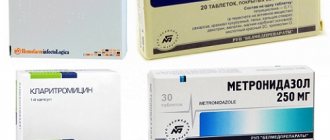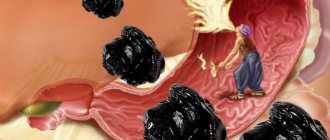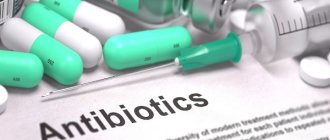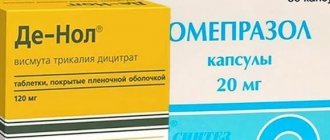- November 12, 2018
- Gastroenterology
- Irina Khalus
Erosive gastritis is a common and dangerous disease that is accompanied by damage to the gastric mucosa. Without treatment, the disease leads to a lot of complications. Of course, patients faced with a similar problem are interested in any available information. What symptoms accompany the disease? What does the treatment regimen for gastritis (erosive gastritis, in particular) look like? Is it possible to use traditional medicine? The answers to these questions will be useful to many readers.
What is erosive gastritis?
Before considering the features of the treatment of erosive gastritis, it is worth understanding the questions of what the disease is and what symptoms are accompanied.
The peculiarity of this form of the disease is the appearance of multiple erosions on the gastric mucosa. The disease, by the way, can be both acute and chronic. As for the causes, the disease may be associated with the influence of external (malnutrition, ingestion of toxins, tissue infection by Helicobacter pylori, chemical burns of the mucous membrane) or internal causes (impaired secretion of gastric juice, genetics).
According to statistics, gastric bleeding is much more common with erosive gastritis. This form of the disease is much less treatable than other types of gastritis.
How to treat erosive gastritis?
Erosive damage to the gastric mucosa gradually leads to the destruction of its walls and the formation of ulcers. When it is perforated, peritonitis develops. If erosions bleed, large blood losses cause anemia. Chronic inflammation spreads to the pancreas and duodenum.
Gastritis is often complicated by pancreatitis, duodenitis, and enterocolitis. Refluxesophagitis develops, in which the contents of the stomach are thrown into the esophagus and its walls are affected. The most serious consequence of erosive gastritis is stomach cancer, which poses a threat to the patient’s life.
To avoid serious complications, treatment for this disease must be started as soon as possible.
The most important thing is to immediately eliminate the impact of all negative factors that can lead to damage to the mucous membrane. Usually this is taking certain antibiotics, hormonal drugs, NSAIDs, poor diet, and drinking alcoholic beverages. This form of gastritis is most often treated with medications, but an important stage of therapy should be changes in diet and lifestyle.
Main symptoms of the disease: when should you see a doctor?
Of course, this disease is accompanied by certain symptoms.
- Many patients complain of pain in the upper abdomen. Often the discomfort becomes stronger after eating or in the morning on an empty stomach. With erosive gastritis, pain is usually moderate, but does not respond well to analgesics.
- Dyspeptic symptoms are also observed - patients complain of heaviness in the abdomen, stool disturbances, a feeling of bitterness and dry mouth.
- The most characteristic symptom of erosive gastritis is sour belching, often with an extremely unpleasant and rotten odor.
Of course, if you notice such disorders, it is important to consult a doctor. A specialist can make an accurate diagnosis only after a complete examination.
Methods of taking antibacterial drugs
Amoxicillin is taken regardless of meals.
Macrolides are taken 2 hours before meals, and Metronidazole and Nifuratol - after meals. Duration of treatment is at least 7 days. If necessary, the course of therapy can be extended.
Important! Antibiotics should not be taken with milk or grapefruit juice. Take it with a glass of water.
Triple therapy method
The primary treatment regimen for gastritis is:
- choice: proton pump inhibitors, ranitidine, or bismuth preparation;
- Amoxicillin 1000 mg capsules or tablets or Metronidazole 500 mg tablets;
- Clarithromycin tablets 500 mg.
A complex of these tablets is taken 2 times a day.
There are combination medications that contain all 3 drugs in one package:
- Pilabakt AM;
- Helitrix;
- Lancid.
Scheme for using quadruple therapy
- gastroprotectors based on bismuth and 500 mg of Tetracycline in tablets - 4 times a day;
- proton pump inhibitors – 2 times a day;
- Metronidazole tablets -500 mg 3 times a day.
other methods
There are different variations of antimicrobial therapy. Here are just a few of them.
- Tetracycline – 500 mg,
Metronidazole (Trichopol) - 400 mg, Bismuth tripotassium dicitrate (De-nol, Ulcavis) - 120 mg, All tablets are taken 4 times a day for 1 week.
- Furazolidone - 200 mg,
Tetracycline – 750 mg, Bismuth preparations – 120 mg.
Duration of therapy – 1 week, 4 doses per day.
- Clarithromycin - 500 mg,
Omeprazole – 40 mg – 2 times a day, Bismuth preparations 240 mg. Take for 7 days 2 times a day.
Treatment of erosive gastritis with medications: scheme
Under no circumstances should you underestimate this disease and refuse therapy. Of course, the treatment regimen for gastritis (erosive gastritis in particular) is complex and consists of several stages:
- The use of antibacterial agents that inhibit the activity of opportunistic microflora.
- The use of drugs that help normalize acidity in the stomach.
- Drugs that help restore the natural structure and functioning of the mucous membranes of the digestive tract.
- Additional medications to help manage specific symptoms and complications.
If the disease is accompanied by bleeding, then darkening of the stool and pain in the epigastric region are observed. Vomit sometimes also contains blood. With a chronic process, the patient develops anemia.
In addition, the treatment regimen for erosive gastritis necessarily includes proper nutrition. Sometimes the use of traditional medicine is allowed, which helps speed up the healing process.
Treatment regimen for gastritis with antibiotics
There are several options for anti-Helicobacter therapy. They differ in the drugs used and dosages. The treatment regimen depends on the individual characteristics of the patients:
- age;
- body weight;
- presence of chronic diseases;
- hypersensitivity to antibiotics.
In addition to antimicrobial drugs, other drugs are prescribed to treat the digestive system:
- Gastroprotectors (De-nol, Venter, Ulcavis, etc.)
- Proton pump inhibitors (Ultop, Omez, Omeprazole, Nolpaza, Pariet, Nexium, etc.);
- H2-histamines (ranitidine, famotidine).
Antibacterial drugs for gastritis
Quite often, this form of the disease develops against the background of the activity of specific bacterial microorganisms, in particular Helicobacter pylori. In such cases, antibacterial therapy is necessary.
As a rule, in modern gastroenterology drugs such as Clarithromycin, Amoxicillin and Ornidazole are used. In addition to antibiotics, some combination agents can be used, in particular, Clatinol, Pilobact Neo and some others.
Are these medications effective for gastritis (erosive gastritis)? Of course, such therapy helps to deactivate bacterial microflora. However, you will also need to take other medications that can restore the functioning of the digestive tract.
Rules for taking antibiotics for gastritis
Antibacterial therapy for gastritis is carried out with a combination of antibiotics. The doctor should determine which antibiotics to take for gastritis and their dosage, based on test results.
Antibacterial agents are used:
- strictly on course;
- according to the instructions for use;
- in compliance with the time and number of appointments per day.
Failure to follow these rules leads to bacteria developing resistance to antibiotics. You will have to select stronger drugs and take a second course. And this is not only stress for the body, but also for the wallet - after all, medicines are expensive these days.
Important! Antibiotics are available with a doctor's prescription.
During therapy you must follow the following diet:
- limit the consumption of fatty, heavy, fried, smoked, spicy foods;
- reduce consumption of coffee, strong tea, nicotine, and alcoholic beverages.
Important! Antibiotics are not compatible with alcoholic beverages - this increases the toxic load on the liver and can cause side effects.
When purchasing antimicrobial agents, preference is given to original, high-quality drugs. They differ:
- better purification of raw materials;
- the presence of clinical studies confirming their effectiveness;
The main disadvantage of cheap generics is low bioavailability, which increases the risk of microbial resistance.
Normalization of gastric secretion with medications
Excessive secretion of gastric juice is a disorder that accompanies erosive gastritis. Treatment with drugs includes taking drugs that have antisecretory properties.
H2-histamine receptor blockers are widely used. Patients are often prescribed medications such as Ranitidine and Famotidine. The second group of drugs used for erosive gastritis are proton pump blockers, for example, Omeprazole or Lansoprazole.
What drugs are used?
Medicines for the treatment of erosive gastritis are prescribed by a doctor. This takes into account the causes of the disease, existing symptoms, the patient’s age, and his general health. Typically, therapy is complex, using drugs from several groups.
- Painkillers or antispasmodics are needed only if the disease is accompanied by severe pain. In most cases, antacids relieve pain, but with low acidity they are ineffective. Therefore, antispasmodics based on drotaverine or platyphylline are used. Mebeverine and Duspatalin are effective.
- Antacids are aimed at reducing stomach acidity. They are available in lozenges and suspensions. This group of drugs includes Almagel, Rennie, Gastal, Phosphalugel, Maalox. They relieve pain, improve digestion, and speed up recovery.
- Two groups of drugs are used to suppress the secretion of gastric juice. Antisecretory agents reduce the production of hydrochloric acid. These are Ranitidine, Famotidine, Kvamatel. Proton pump inhibitors reduce stomach acid. These are Omeprazole, Pantoprazole, Rabuprazole.
- Antibiotics are used to eliminate Helicobacter pylori infection. They are prescribed in different combinations of 2 drugs. The most common are Amoxicillin, Clarithromycin, Azithromycin, Rimfapisine, Tetracycline. Sometimes they are combined with the antimicrobial drug Metronidazole.
- For secretory insufficiency, enzyme preparations are used: Mezim Forte, Creon, Pancreatin.
- Gastroprotectors protect the walls of the stomach and accelerate healing. These are De-Nol, Rebagit, Sucralfate.
In the acute form or during an exacerbation, symptomatic therapy is immediately prescribed. First you need to reduce pain, reduce inflammation, prevent the formation of new erosions, and stop bleeding. Sometimes the patient needs to be admitted to a hospital. There, medications are administered by injection to avoid unnecessary trauma to the mucous membrane.
Drug treatment of erosive gastritis lasts from 1 to 6 months.
After alleviating the patient’s condition, the treatment regimen is selected depending on the form and type of the disease and its stage. Drugs are prescribed that relieve symptoms of gastritis, restore mucous membranes, and improve digestion.
Antacid medications for gastritis
The treatment regimen for gastritis (erosive gastritis in particular) includes taking antacids. These drugs neutralize hydrochloric acid secreted by stomach cells, which leads to normalization of pH levels. Medicines also prevent the negative effects of acid on the mucous membrane of the stomach and duodenum, as they form a kind of protective film on its surface.
The list of the most effective drugs includes Almagel, Rennie, Venter, Maalox. By the way, these same medications quickly eliminate heartburn, which is inevitably associated with any type of gastritis.
List of antibiotics for gastritis
Antibiotics from 4 pharmacological groups are used to treat gastritis:
- Macrolides ( Clarithromycin or Josamycin );
- Semi-synthetic penicillins ( Amoxicillin );
- Tetracyclines ( Tetracycline );
- Other antimicrobial agents ( Metronidazole , Nitrofurel , Furazolidone ).
Therapy is prescribed according to special treatment regimens, which include a complex of antimicrobial drugs.
Antibacterial group of macrolides
The group name of antibiotics is due to their chemical structure (they contain a macrocyclic lactone ring). The mechanism of action is to inhibit protein synthesis in bacteria.
Advantages of the drugs:
- do not cause serious side effects (candidiasis, dysbacteriosis);
- long action;
- wide spectrum (effective against a large number of pathogens);
For the treatment of gastritis caused by the Helicobacter bacteria, semi-synthetic antibiotics are prescribed:
- Clarithromycin (marketed under the names Fromilid , Klacid , Clarbakt, Klabaks , Ecositrin , etc.);
- Josamycin (trade names - Vilprafen and soluble form of Vilprafen solutab ).
Their antimicrobial activity is higher than that of early macrolides.
Josamycin is one of the newest drugs. It differs in the intensity of its action against bacteria that have not yet developed resistance to it. Used as a backup.
Group of penicillin-containing antibiotics
A representative of penicillins is Amoxicillin , a semisynthetic broad-spectrum antibiotic.
Manufactured under the following trade names:
- Flemoxin Solutab;
- Amosin;
- Ecoball.
Often, clavulanic acid is introduced into the dosage form, which prevents the development of resistance in bacteria and prevents the destruction of the antibiotic by enzymes of the microbial cell.
Names of Amoxicillin preparations enhanced with clavulanate:
- Amoxiclav;
- Flemoklav solutab;
- Augmentin;
- Bactoclav;
- Panclave;
- Novoklav;
- Honeyclave;
- Rapiklav;
- Ecoclave.
Drug treatment of erosive gastritis: list of other medications
What else is used for this disease? Therapy in this case is determined individually:
- This form of the disease is often associated with impaired motility of the digestive tract, especially when it comes to a chronic inflammatory process. The treatment regimen for gastritis (erosive gastritis) necessarily includes taking medications such as Motilium, Metoclopramide, Domperidone and Cerucal. This therapy helps normalize the contractile activity of the smooth muscles of the intestines and stomach.
- Since gastric secretion is blocked by medications during treatment, it becomes difficult for the body to digest food. Therefore, the scheme includes enzyme preparations, in particular, “Festal”, “Creon”, “Panzinorm”, “Mezim”.
- As already mentioned, erosive gastritis is often associated with blood loss. This is why it is necessary to take medications that can stop bleeding. Their list includes “Vikasol”, “Ditsinon”, “Etamzilat”.
- Patients are also recommended treatment with alkaline mineral waters. This therapy is best carried out in specialized sanatoriums.
Proper nutrition
Treatment of erosive gastritis with medications certainly produces results. But in this case, nutrition is extremely important. A proper, gentle diet helps speed up the therapy process.
To begin with, it is worth noting that patients are recommended to eat fractional meals - eat often, but in small portions. Too cold and hot food irritates the inflamed gastric mucosa, so the food should be warm. In the first few weeks of treatment, all products should be crushed to a pasty state. Dishes must be fresh, steamed or boiled.
Of course, there is a list of foods that need to be excluded from the diet. This list includes fresh bread, pastries, buns, and sweets. You should also avoid spicy foods, spices, and fatty foods, including sausages, lard, pork, and some types of fish. It is forbidden to eat pickles, pickled vegetables, canned food, sour fruits and berries. Vegetables can only be consumed boiled.
Goals of drug treatment
The main goal of drug treatment of erosive gastritis is to protect the mucous membrane from the negative effects of hydrochloric acid. This prevents the formation of new erosions and accelerates the healing of existing ones. For effective therapy, medications are selected that would solve the following problems:
- reduced the production of hydrochloric acid;
- reduced increased stomach acidity;
- relieved pain;
- improved the digestion process;
- accelerated the evacuation of stomach contents into the intestines;
- improved blood circulation and tissue regeneration processes;
- accelerated the healing of erosions.
It is also necessary to eliminate the cause of the disease. Most often this is the bacterium Helicobacter pylori. More than 60% of cases of erosive gastritis are associated with it. But the cause may be fungi, parasitic infestations, autoimmune or infectious diseases, liver or kidney dysfunction. If you do not take pills aimed at eliminating these pathologies, you will not be able to cure erosive gastritis.
Before prescribing medications, the doctor must conduct an examination to determine the cause of the disease.
It is recommended to stop taking other medications, supplements and vitamins if possible, as they can also lead to the formation of erosions. Sometimes it is necessary to prescribe sedatives, since gastritis can be caused by stress or strong feelings.
Traditional methods of treating gastritis
Of course, there are a huge number of folk remedies that help cope with the symptoms of erosive gastritis:
- Sea buckthorn oil, which has pronounced anti-inflammatory properties, is considered very effective. This product, by the way, promotes the healing of erosions and ulcers. You can prepare the oil yourself (mix equal amounts of fresh sea buckthorn juice and olive oil, leave for three days in a dark and cool place) or purchase a ready-made product. It is recommended to take a teaspoon of this remedy, preferably in the morning, 30 minutes before breakfast. The course of treatment lasts at least two weeks.
- Chamomile also copes well with erosive gastritis (this plant also relieves inflammation). Place five tablespoons of dried plant flowers (sold in pharmacies) in an enamel bowl and pour in 250 ml of milk. The mixture must be brought to a boil. After removing the broth from the heat, cover the container with a lid and leave for an hour. Next, strain the product. You need to take the medicine on an empty stomach, one glass at a time (preferably warm). The course of treatment is 5 days.
- Many doctors recommend drinking a decoction of flax seeds for gastritis. Consuming rice water will also have a positive effect on the condition of the mucous membrane of the digestive tract. Both of these products have astringent properties. They also partially neutralize acid and provide protection to the mucous epithelium.
You should not include the above-described medications in therapy without medical advice. Erosive gastritis is a very serious disease, so during therapy it is important to strictly follow all the recommendations of the treating gastroenterologist.
Reviews from patients, as well as medical statistics, indicate that with the right approach, the disease can really be gotten rid of. However, therapy lasts a long time, sometimes several months, because the body needs time to fully recover. By the way, the diet must be followed even after full recovery - this will reduce the risk of relapse.











